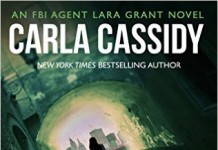 Paul had a little fun sending up James Patterson’s $90 writing course a couple of months ago, and a number of commenters below his piece were also dissatisfied with Patterson’s advice. But on the other hand, at least one independent writer has taken it and found it very useful.
Paul had a little fun sending up James Patterson’s $90 writing course a couple of months ago, and a number of commenters below his piece were also dissatisfied with Patterson’s advice. But on the other hand, at least one independent writer has taken it and found it very useful.
Writer Joyce Maynard expressed many of the same doubts starting out—she’d heard many of the same things about Patterson’s reputation as you can see below Paul’s post. But then she spent $90 and three hours going through the material, and voila:
Just over three hours later, I officially graduated. And though I entered into this project with a large measure of skepticism—worse, even: I entered anticipating that his lessons might offer up some great comedy material—by the time the last lesson was over, and Mr. Patterson (Jim, to me, now) had set me loose to write my best seller, I had developed genuine respect for the man. Even affection. If I met him at a book festival some day, and the opportunity arose, I’d greet him like an old friend.
Of course, the article doesn’t say whether, energized by Patterson’s insightful instruction, she then proceeded to write her first ever mega-bestseller. But she did write a pretty long article going into detail about what sorts of things Patterson advises, so at least that’s something.
All joking aside, Maynard’s description of Patterson’s advice sounds pretty familiar from all the other writing instruction classes and panels I’ve taken. Which is because it probably is. I’ve come to realize that a lot of writing advice fundamentally boils down to the same advice, just from different givers, just because so much successful fiction shares so many things in common that it would be hard for any reasonably intelligent person not to take note of them.
So, there are probably very few bits of advice you could only get from Mr. Patterson, and there are plenty of other substitutes should you want your hard-earned dollars to go toward an author who doesn’t have so much of it already.
My suggestion? Michael Stackpole. He’s not a mega-famous mega-rich mega-bestseller (though he’s spent his share of time on the New York Times list), and in fact he has some strong words for writers like Patterson who would put their name on other writers’ work (see the last answer on his FAQ page).
Stackpole is a craftsman who has written dozens and dozens of novels, including tie-ins in some fairly well-known properties (Star Wars, BattleTech) as well as his own original works. And he has a very successful sideline giving instructional seminars at conventions all over the place, including DragonCon and the Gen Con Writers Symposium. He’s good at writing and at teaching. I reviewed one of his seminars here, and writer Cat Rambo took notes on another one.
Check out this essay on dealing with dialogue tags, this one about improving descriptions, this one on integrating emotion into dialogue, or this one on building characters and experimenting with what makes them tick. Then there’s this piece on conveying facts about characters through word choice rather than dialect, or this lesson on world-building. And those are all free pieces on his blog!
Stackpole has a number of instructive writing courses that he sells for $20 each, such as 21 Days to a Novel (or get it for Kindle here) or Writing Fiction: A Short Course (also on Kindle). He also had a CD collecting a number of his writing lessons that he used to sell at his personal appearances, though I don’t seem to find where it can be ordered on-line. Perhaps he’s stopped selling it.
He’s also teaching some online writing courses for Arizona State University, though given that those cost on the order of ten times as much as paying Patterson for his seminar, I think you’d probably just better stick with the $20 lessons.
Anyway, the important thing is that there is plenty of other good writing advice out there, a lot of it cheaper than Patterson’s lessons, and some of it free. But by the same token, just because Patterson is feelthy rich and likes to put his name on other writers’ work doesn’t mean he doesn’t have good advice to offer, too. After all, he had to know how to write well enough on his own to strike it rich before he was able to franchise his name out to other people. So if you should want to pay $90 for it, you’ll probably not find your money entirely wasted.
And if you should be able to get to Indianapolis in August of next year, you can get all this advice and more from Stackpole and other writers in person, at the Gen Con Writers Symposium. Trust me, it’s worth the trip.
Whatever you do, one bit of advice we can probably all agree on is that if you’re a writer, you should write.

































@Chris: Props to you! That’s one of the best TeleRead posts I’ve read in a long time. I hope that TeleRead community members follow the Joyce Maynard link for some wonderful tongue-in-check.
Of course, I agree with Michael Stackpole’s advice that writing constantly is a good way to become a writer. He’s hardly the first to say so, but then, as you remind us, writerly wisdom stays the same even if it comes from different people.
Now back to the need to write. I would urge people to read and respond to ‘I’m John Scalzi and This is How I Work.’ Now, how do YOU work, when writing?. The goal should be to make writing as physically comfortable as possible. Perhaps inside you are terribly uncomfortable, and the best literary books may even unnerve the reader. But while you’re committing the actual act of writing, don’t neglect the ergonomics.
Let’s see some discussion,TeleRead folks. Just what kind of physical setup is best for you?
Having seen a photo of Chris at work on a laptop, by the way, I suspect that his ideal setup might differ hugely from mine.
David
I’ve not taking any writing courses and, absent a scholarship probably won’t but I suspect that Patterson might be one of the better options if I did and wanted his kind of success.
It’s one thing to be a successful writer. That could be luck. It could be some intuitive good sense that you can’t explain to others. It’s quite another thing to be like Patterson and maintain a stable of co-authors who share your success. That suggests that you can teach why you succeed. And the very fact that Patterson is probably guiding the broader plans of these books, makes him an even better teacher. It’s often the plot and the plot-enhancing devices that make for success. Most writer can probably turn out tolerable writing.
—–
That said, while I’ve not read Patterson, I have read as much as I could stomach of similarly successful writers. My problem lies in a different area. Someone who’s written a long string of bestsellers, I suspect, isn’t writing for the general population. They’re writing for people who for various reasons have the time to read three of four books a week. They’re the market for these thrillers and romances.
And what do such people have in common? They’re not doing much with their lives. That is why they have time to read. They’re living illusions and want books that reinforce those illusions.
For instance, in one of my attempts to read one of the hyper-popular authors, I discover his hero, a guy who hops into his personal jet to fly alone across the Atlantic with no more preparation that someone driving to their local shopping center. I’m no expert on flying, but I know enough to know that’s absurd. I don’t care if an author bores me with all the details of preparing for such a flight, but I want it to rest there in the background.
Not so these readers. They live in an almost magical world devoid of the hard-won labor and experiences it takes to succeed. All they know is driving to a supermarket, so that’s what they want flying to be like. They do not know know how hard it is to become a good pilot and these phony tales will never tell them.
Worse still, they take their ignorance of life into the voting book. Presented with a candidate offering “Home and Change,” they don’t ask if he’s ever accomplished anything. That’s be like questioning the hero of their novels. A hero simply is. He knows all and does all.
Truman had spent years studying and dealing with foreign policy before he became president. I know. I’ve seen his library. He was good at it. Reagan spent years commenting for domestic and foreign politics. He had a track record of success there. We could know before he became president that he would do well.
In contrast, with Obama we were told that the fact that he had a foreign father and had lived in Indonesia for a few years meant he’d be an excellent foreign policy president. By that criteria, perhaps 5 billion people would make excellent foreign policy presidents. Chatter like that masked the fact that Obama had no track record of writing on or dealing with foreign policy effectively. He was a zero and he’s become worse than a zero.
These thrillers teach nothing about that. They have the equivalent of “hope and change” heroes. Like that guy flying across the Atlantic with no preparation, their lead characters work wonders devoid the effort and demonstrable skills it takes to achieve success in real life.
In short these bestsellers take people who already know nothing about what’s required to be a good president and make them even more ignorant. They take people whose judgment about life is already shaky and make it still worse.
In short, they’re the literary equivalent of junk food.
I follow a number of blogs that offer some great writing advice. I have looked at Patterson’s offering, and put it on the backburner. Don’t have the money to do it right now. But the idea of not paying for Patterson’s course just because he’s already rich hits a sour note for me.